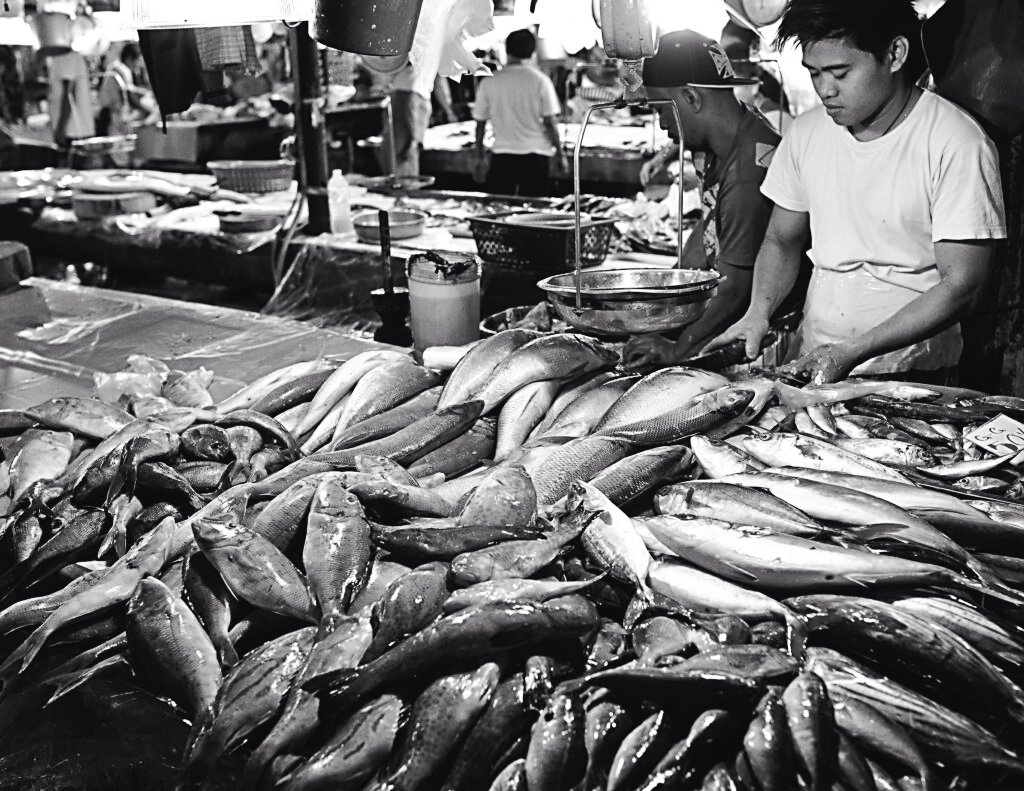
It’s 4:12 a.m. in Mega Q-Mart, Quezon City.
Before the crowd. Before the buses rumble past.
The air is sharp with cold and brine,
and Jomar, twenty-one, stands behind his steel table,
elbows deep in crushed ice,
laying out bangus, tilapia, and lapu-lapu
like a quiet ceremony.
He wears rubber boots, cracked and whitening,
a sleeveless basketball jersey smeared with fish blood,
and a blue apron that reads “Presyong Palengke, Quality Guaranteed.”
His hands are fast—knife in one, gut bucket on the side.
Swoosh. Slice. Rinse.
Next.
He learned the trade from his uncle who’s been in Q-Mart since Marcos was still on TV.
Jomar jokes:
“Walang diploma, pero Dean’s Lister sa isda.”
No degree, but top of the class in fish.
Tourists never come here.
This isn’t BGC or the clean side of Cubao.
This is palengke proper—
the chatter of suki and sellers,
the clang of steel knives,
the rhythmic chorus of:
“Suki! Presko pa ’to!”
“Ate, dagdagan mo na lang ng piso!”
Jomar greets each customer with a grin missing one molar,
calling titas “Ma’am” with gentle irony,
cracking jokes with tricycle drivers,
flirting just enough with the girl from the vegetable stall two aisles over—
the one who sells malunggay and calls him “Fish Boy.”
He doesn’t mind the smell.
“Amoy trabaho ’yan,” he says.
It smells like work. Like dignity. Like surviving Manila one kilo at a time.
By noon, his hands are numb,
his apron soaked,
his voice hoarse from bargaining.
But he whistles as he counts his crumpled bills.
Sometimes, he dreams of opening his own stall.
Jomar’s Fresh. May pa-sticker. May pa-TikTok.
Maybe cold storage.
Maybe a uniform.
But for now, he sharpens his blade again,
straightens the last row of bangus,
and shouts into the steamy air:
“Suki! Presko! ‘Wag mo na ilagay sa ref—ito, buhay pa!”
And the market pulses on—
flesh, steel, steam,
and the rhythm of a young man who knows
that fish, like dreams, must be caught early
before they slip away.